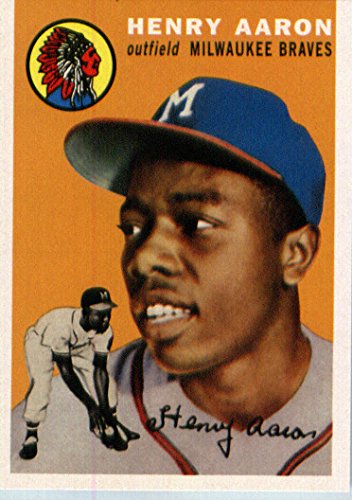A great player with a laid-back personality, Aaron was for years overshadowed by the flamboyance of Willie Mays, the gritty aggression of Frank Robinson, the elan of Duke Snider, and the incandescent brilliance of Roberto Clemente... Consistency was Aaron's hallmark. He played in the major leagues for 23 years, hitting 30 or more home runs 15 times, driving in over 90 runs 16 times, hitting over .300 14 times. It was said that "throwing a fastball by Henry Aaron is like trying to sneak the sunrise past a rooster.” ~ National League Most Valuable Players
The man who shattered Babe Ruth's lifetime home run record, Henry "Hammering Hank" Aaron left his indelible mark on professional baseball and the world. But the world also left its mark on him. This intimate autobiography of one of the greatest names in pro sport is also a fascinating social history of twentieth-century America.
With courage and candor, Aaron recalls his struggles and triumphs in an atmosphere of virulent racism. He relives the breathtaking moment when, in the heat of hatred and controversy, he hit his 715th home run to break Ruth's cherished record — an accomplishment for which Aaron received more than 900,000 letters, many of them vicious and racially charged. And his story continues through the remainder of his milestone-setting, barrier-smashing career as a player and, later, Atlanta Braves executive — offering an eye-opening and unforgettable portrait of an incomparable athlete, his sport, his epoch, and his world.
A Summer Up North: Henry Aaron and the Legend of Eau Claire Baseball
During Henry Aaron's 1952 season with the Eau Claire Bears, a Class C minor league team, the future Hall of Famer learned that he was talented enough to play ball professionally and that his skills would earn him acceptance among white middle-class baseball fans.
Jerry Poling's history of that single season is both the story of Aaron's maturation and of a Wisconsin town's love affair with its minor league baseball team.
In 1952, Aaron was an 18-year-old shortstop from Mobile, Alabama, who had never been so far from home and whose only previous experience was on all-black ballteams. He played for the Eau Claire Bears in their heyday, at a time when the 35,000 residents faithfully followed their team of prospects and filled "the lovely stone stadium nestled in tall pine trees on an island in Half Moon Lake."
Poling traces the progress of the 1952 season and places it in context with Aaron's illustrious career and the history of professional baseball in Eau Claire.
Boxing legend Muhammad Ali once called Hank Aaron “The only man I idolize more than myself ” and in 1970, Hall of Famer Mickey Mantle said “As far as I’m concerned, Aaron is the best baseball player of my era. He is to baseball the last 15 years what Joe DiMaggio was before him. He’s never received the credit he’s due.”
Hank Aaron grew from humble beginnings in Mobile, Alabama, passed through the sandlots with brief stops in the Negro Leagues and the minor leagues before he settled in with the Braves where he ultimately became one of baseball’s most iconic figures. He was a consistent producer both at the plate and in the field, reaching the .300 mark in batting 14 times, 30 home runs 15 times, 90 RBI 16 times and captured three Gold Glove Awards en-route to 25 All-Star appearances. Phillies and Cardinals pitcher Curt Simmons said “Trying to sneak a pitch past Hank Aaron is like trying to sneak a sunrise past a rooster.”
Nineteen fifty-seven was arguably Hank Aaron’s best season. He hit .322 that year with 44 home runs and 132 RBI, captured the National League MVP Award and led the Braves to their first World Series Championship since 1914.
Despite his consistent production, it wasn’t until 1973 that Aaron was thrust into the national spotlight as he neared the finish of a successful assault on one of sport’s most cherished records- Babe Ruth’s mark of 714 home runs. It was on April 8, 1974, that Hammerin’ Hank sent a 1-0 pitch from Dodgers hurler Al Downing into the leftfield bullpen. Aaron was recognized for thirty years as baseball’s all-time home run king until his record of 755 home runs was passed in 2007.
It was shortly after Hank Aaron’s record breaking 715th home run that Georgia congressman Andrew Young declared “Through his long career, Hank Aaron has been a model of humility, dignity, and quiet competence. He did not seek the adoration that is accorded to other national athletic heroes, yet he has now earned it.”
Hank Aaron’s humility and grace was never more evident than at his Hall of Fame induction speech in 1982, where he proclaimed “I never want them to forget Babe Ruth. I just want them to remember Henry Aaron.”





